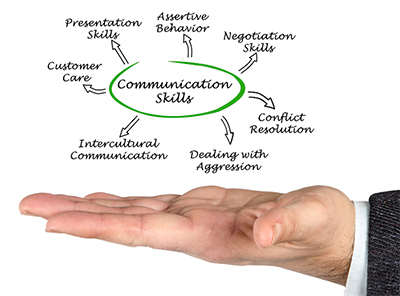Anger is One Letter Short from Danger
We all know what anger is, and we have all felt it. Anger is a natural response to threats. It can inspire powerful, aggressive feelings and behaviors, which allow us to fight and to defend ourselves when we are attacked. A certain amount of anger, therefore, is necessary to our survival. Anger can be caused by both external and internal events. You could be angry with a specific person, event, or personal problem.
Like other emotions, it is accompanied by physiological and biological changes. Your heart rate and blood pressure go up, as do the levels of your energy. Anger is a completely normal, usually healthy, human emotion. However, when it gets out of control and turns destructive, it can lead to danger.
People use a variety of both conscious and unconscious processes to deal with their angry feelings. The three main approaches are expressing, suppressing and calming.
-
Expressing your angry feelings in an assertive manner is the healthiest way to express anger. Being assertive does not mean being pushy or demanding. It means being respectful of yourself and others. You are able to make clear what your needs are without hurting others.
-
Suppressing your anger is when you hold it, stop thinking about it, and focus on something positive. The aim is to convert it into a constructive behavior. The danger in this type of response is that if it is not allowed outward expression, your anger can turn inward, on yourself. Anger turned inward may cause hypertension, high blood pressure or depression. Unexpressed anger can create other problems. It can lead to passive-aggressive behavior (getting back at people indirectly without telling them why), or a cynical and hostile personality. Individuals who are constantly putting others down, criticizing everything, and making sarcastic remarks have not learned how to constructively express their anger. They are likely to have trouble in their relationships.
-
With calming, the third method of dealing with anger, you can calm down your angry feelings. This means not just controlling your outward behavior, but also your internal responses. Deep breathing and relaxing imagery can lower your heart rate and allow you to calm yourself until the feelings subside.
Unfortunately, when these three techniques do not work, someone or something is probably going to get hurt. The goal of anger management is to reduce both your emotional feelings and the physiological arousal that anger causes. You cannot get rid of or avoid things or people that enrage you, nor can you change them. You therefore must learn to control your reactions to avoid danger.
Surely you have often heard someone say, “Well, I just say it like it is. If you don’t want to hear it, you better not ask.” In other words, they are saying I have a license to hurt others. Telling it like it is with anger actually escalates anger and aggression and does nothing to help you or the person you are angry with to resolve the situation. If you are in a heated discussion, slow down and think through your responses. Do not say the first thing that comes into your head. Listen carefully to what the other person is saying and take your time before answering. It is natural to get defensive when you are criticized, but do not fight back. It will require patience on your part, but do not let your anger spin out of control. Keeping your cool will keep danger away.
It is best to find out what triggers your anger, and then to develop strategies to keep those triggers from shooting you over the edge. Simply put, this means re-engineering the way you think. Angry people tend to curse, swear, or speak in highly colorful terms that reflect their inner thoughts. When you are angry, your thinking can get very exaggerated and overly dramatic. Be careful of words like “never” or “always” when talking about yourself or someone else. These words are not just inaccurate, they also serve to make you feel that your anger is justified and that there is no way to solve the problem. “This %&!* @# computer.” “You are always late.” “You never keep your promises.” These statements also alienate and humiliate people who might otherwise be willing to work with you on a solution. Re-engineer your thought process. Remind yourself that getting angry is not going to fix anything. Getting angry will not make you feel any better. It may actually make you feel worse.
Logic will defeat anger. Anger, even when it is justified, can quickly become irrational.
Remind yourself that the world is not out to get you, you are just experiencing some rough spots on your journey. Do this each time you feel anger getting the best of you, and it will help you get a more balanced perspective.
Sometimes, our anger and frustration are caused by very real and inescapable problems. The belief that every problem has a solution can add to our frustration when we find out this is not always the case. In this situation, do not focus on finding the solution but on how you handle and face the problem. Resolve to give it your best. Do not punish yourself if a solution does not come right away. You will be less likely to lose patience and fall into all-or-nothing thinking, even if the problem does not get solved right away.
Humor can help defuse anger. It can help you get a more balanced perspective. Humor can take the edge off your fury. Humor can unknot a tense situation. There are two cautions in using humor. First, do not try to “laugh off” your problems. Use humor to help you face them more constructively. Second, do not give in to harsh, sarcastic humor. Anger is a serious emotion, but it is often accompanied by ideas, that if examined, can make you laugh.
You cannot eliminate anger. Life will be filled with frustration, pain, loss, and the unpredictable actions of others. You cannot change that, but you can change the way you let such events effect you. Controlling your angry responses can keep them from becoming a danger for you.
© 2015 Alliance Training and Consulting, Inc.
View our Communication Courses


